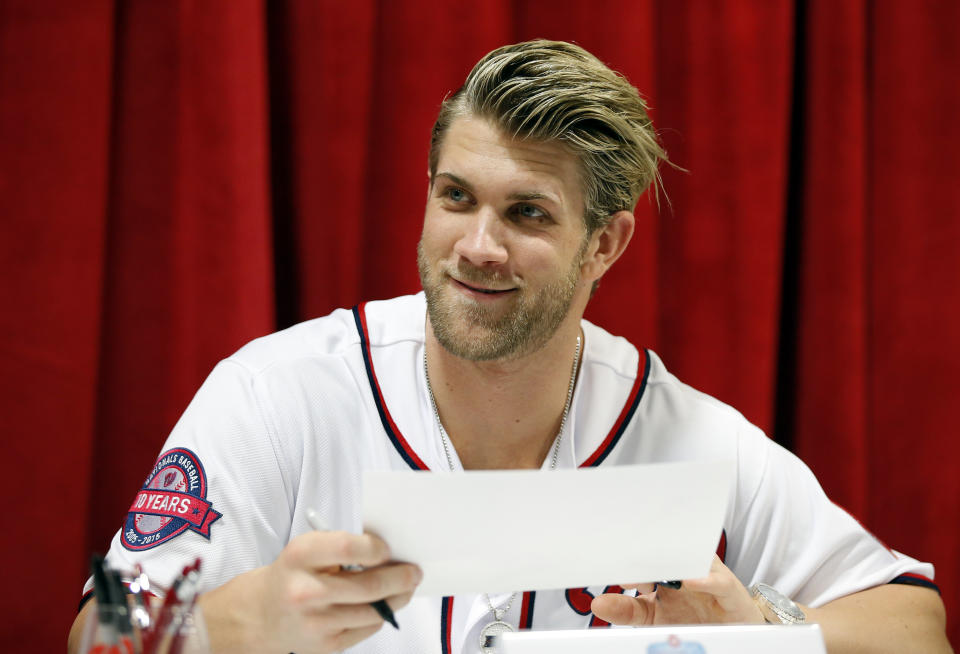The luxury tax is bad for MLB, and is already destroying the game

Major League Baseball’s offseason can be summed up with one image thus far: A tumbleweed blowing across an empty, dust-filled field. Only the field is a barren winter wasteland, and the tumbleweed is somehow made of ice.
Teams have operated at a glacial pace. With less than six weeks until pitchers and catchers report, nearly every player is still on the market. Only six of Jeff Passan’s top-20 free agents have signed, and the lack of rumors surrounding available players gives the impression that may not change soon.
Many writers have offered their takes on why things have been slower than normal this winter. Perhaps it’s because every team views themselves as contenders now? Maybe clubs are playing the waiting game better? Or maybe the available talent is just really bad?
While all of those factors may be true, baseball’s luxury tax has undoubtedly also played a role in free agency grinding to a halt. And the worst part is that this is just the beginning. It’s only going to get worse from here.
The luxury tax, which was revised during the last collective-bargaining agreement, is essentially a soft salary cap. Teams that exceed a spending limit set by MLB will be subject to fines, some of which can be steep. The tax is meant to level the playing field among all 30 teams in an attempt to create parity. The league officially refers to it as the “competitive balance tax.”
We’ve already started to see how much that tax has impacted free agency this winter. The Los Angeles Dodgers and New York Yankees have made it no secret they are striving to get under the league-mandated limit. The Dodgers have gone so far as to make moves with the specific intention of cutting salary to avoid the tax.
The San Francisco Giants have done the same, prompting Grant Brisbee of SB Nation to explore some of the ways in which the luxury tax has impacted free agency this winter.
One of the things those teams aren’t saying, but Brisbee mentions, is that the luxury tax gives clubs another excuse to not pay elite free agents. The Yankees, for instance, have a massive hole at third base that could be plugged by Mike Moustakas. But signing Moustakas at a fair price would bring them much closer to the luxury tax limit.
The way this rule is supposed to work, the Yankees would just move on and sign a lesser player. The rich wouldn’t get richer, and Moustakas would still be available for a team more desperate for his help.
But that’s not what’s going to happen. The big market teams will now simply wait out elite free agents, forcing them to lower their asking price. The rich will still get richer, it just won’t cost them as much.
There’s no benefit to small market teams, making the name “competitive balance tax” nothing more than an exceptional attempt at branding by the league.
Small market teams aren’t magically able to offer $120 million contracts for top flight players with the luxury tax in place. Large market teams can still hand out multiple $80 million deals like nothing. It’s not as if the luxury tax has suddenly made the Tampa Bay Rays a serious candidate for J.D. Martinez.
That creates a scenario where the top free agents still sign with the big market teams, but at a fraction of their market cost. The Yankees handing out $80 million to Martinez is still better than anything the Rays can offer.

The lowball strategy won’t work next year, when Bryce Harper, Manny Machado and Clayton Kershaw could hit the market, but it’s not like that matters. Both the Yankees and Dodgers are already among the teams in the best position to land one of those guys. They’ve already shown they can effectively skirt around luxury tax penalties and still hand out massive deals when the market demands it.
Harper, Machado and Kershaw will be the exception. The once in a lifetime guys will get their money. Every other player will suffer. And the further a player is from superstar status, the more he’ll feel the impact. The market for mid-level players will crash. You’ll see far more one-year, prove-it deals from players hoping next year’s market somehow improves.
There’s a large portion of baseball fans who will view this as a positive. An overpaid player is the worst thing imaginable in the minds of fans. They get blamed for everything, including the increasing cost of attending games.
But players getting paid less won’t change any of that. It only puts more money in owners’ pockets. And do you think the owners are going to turn around and use that extra money to make games more affordable to fans?
Baseball is a profitable business, despite what some teams say. And if there are teams that truly operate at a loss, they can always be sold at a huge profit. Just look at how well Jeffrey Loria made out by selling the Miami Marlins, who were — and still are — a financial disaster, according to reports.
There’s more than enough money to go around, but teams now have another reason to tell players and fans that’s not the case. The effects of the luxury tax have already been felt this winter, and things are unlikely to get better until the collective-bargaining agreement ends in 2021.
At that point, the players have to hope they still have the negotiating power necessary to break free of the luxury tax and drastically overhaul the process.
More coverage from Yahoo Sports:
– – – – – – –
Chris Cwik is a writer for Yahoo Sports. Have a tip? Email him at christophercwik@yahoo.com or follow him on Twitter! Follow @Chris_Cwik


